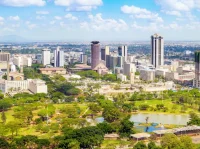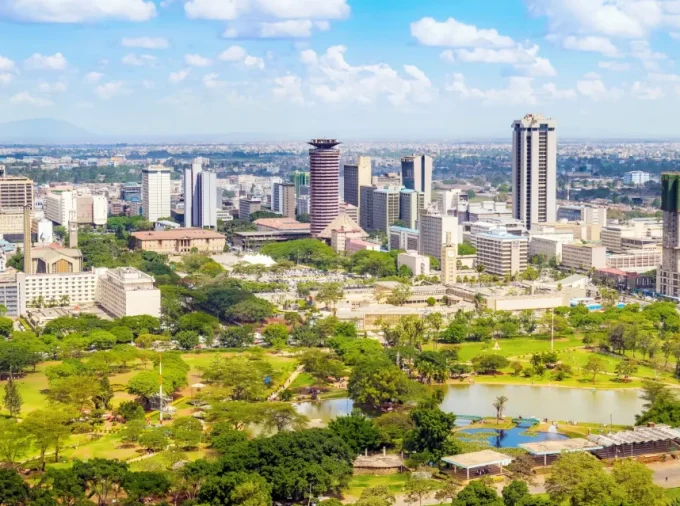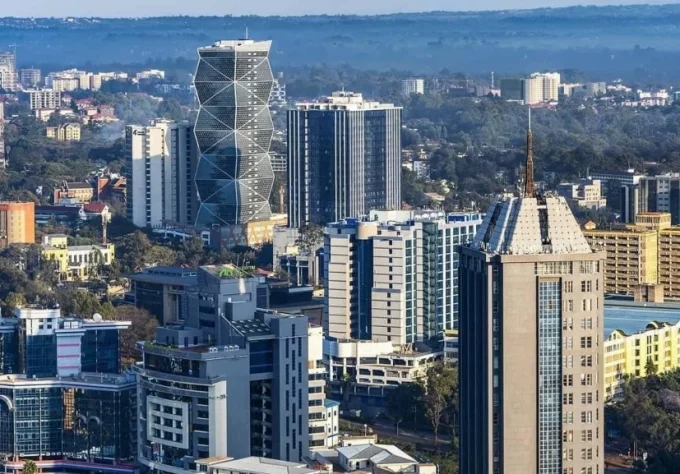CAIRO — An Egyptian judge on Saturday sentenced former President Hosni Mubarak to life in prison for the killing of unarmed demonstrators during the first six days of protests that ended his rule. It was the second verdict against an Arab ruler brought before the law by a popular revolt, after the conviction in absentia last year of Tunisia’s former leader, and for many Egyptians it may be the greatest achievement so far of the uprising that began 16 months ago but has been stuttering ever since.
With the nation still awaiting the ratification of a new constitution, the election of a new president and the hand-over of power by its military rulers, the decision is Egypt’s most significant step yet toward establishing the principle that no leader is above the law. But even that victory appeared tenuous. Lawyers critical of Mr. Mubarak warned that the verdict was vulnerable to appeal, with the judge stating clearly that the prosecutors had presented no evidence that either Mr. Mubarak or his top aides had directly ordered the killing of protesters.
Instead, the judge, Ahmed Rafaat, found that Mr. Mubarak was an accessory to murder because he failed to stop the killing — which lawyers said would not meet the usual standards of proof for a murder conviction under Egyptian or international law. Many said the verdict appeared contradictory because the judge had acquitted several lower-ranking security officials who would have been responsible for the police, raising questions about the chain of command.
The judge also dismissed corruption charges against Mr. Mubarak and his sons on technical grounds, and by late afternoon thousands of protesters angry at the limits of the decision were pouring into the streets in Cairo, Alexandria, Suez and elsewhere. Against an opaque backdrop of military rule, in which the generals, prosecutors and judges were appointed by Mr Mubarak, demonstrators traded conspiracy theories, the most incendiary being that the ruling generals might have influenced the ruling, seeking to placate the street with a seemingly tough decision that would later collapse.
“It is all an act. It is a show,” said Alaa Hamam, 38, a Cairo University employee joining a protest in Tahrir Square, the symbolic heart of the uprising. “It is a provocation.” The ruling has already become a political battleground in Egypt’s first competitive presidential race, expected to be decided this month by a runoff between the candidate of the Muslim Brotherhood and Ahmed Shafik, Mr. Mubarak’s last prime minister.
Mr. Mubarak, 84, was housed during the trial in a military hospital where he enjoyed visits from his family, according to news reports, and a daily swim. After the verdict, a helicopter flew him to a Cairo prison. State news media reported that he had complained of a heart attack while in the helicopter. He was treated in the helicopter and for two and a half hours refused to leave it, the state media said.
At the court, after a flowery tribute to the glory of the Egyptian uprising, the judge pronounced that “defendant Mohamed Hosni Mubarak be sentenced to a life term for the allegations ascribed to him, being an accessory to murder” in the killing of more than 240 demonstrators during the last six days of January 2011.
The judge sentenced Mr. Mubarak’s former interior minister Habib el-Adly to the same penalty. The dismissal of murder charges against a group of Mr. Adly’s aides and other security officials raised questions about which officials, if any, might be held more directly responsible. As for the corruption charges, the judge ruled that a statute of limitations had expired since Mr. Mubarak and his sons, Alaa and Gamal, allegedly received a set of luxurious Red Sea vacation homes as a kickback from a Mubarak crony, Hussein Salem.
Mr. Mubarak showed no reaction to the verdict. Wearing dark glasses and a light-colored tracksuit, he lay on a hospital gurney in the metal cage that holds criminal defendants here. Alaa Mubarak appeared to recite verses of the Koran as the verdict was read. Both sons stood in front of their father to try to shield him from the cameras, and after the ruling they had had tears in their eyes.
They remain in jail while they face charges in an unrelated stock-manipulation case announced last week. In issuing his decision, Judge Rafaat said Mr. Mubarak’s rule was “30 years of intense darkness — black, black, black, the blackness of a chilly winter night.” He also said officials had “committed the gravest sins, tyranny and corruption without accountability or oversight as their consciences died, their feelings became numb and their hearts in their chests turned blind.” “The peaceful sons of the homeland came out of every deep ravine with all the pain they experienced from injustice, heartbreak, humiliation and oppression,” he added.
“Bearing the burden of their suffering on their shoulders, they moved peacefully toward Tahrir Square in Cairo, Egypt’s capital, demanding only justice, freedom and democracy.” But if Judge Rafaat hoped the streets would cheer the verdict, he was soon disappointed as scuffles and chaos broke out in the courtroom. “The people want to cleanse the judiciary,” chanted an angry crowd of lawyers for the victims and other supporters.
Analysts called the ruling a new liability for Mr. Shafik as the runoff presidential election approached. Mr. Shafik presided over the cabinet when the police failed to protect unarmed protesters in Tahrir Square from a deadly assault by a mob of Mubarak supporters, and his opponents hope reaction to the verdict will galvanize public opinion against him. Many assert that if elected he would pardon his former boss. In a statement, Mr. Shafik said the next president should “comprehend the historic lesson” of the decision.
“This means that nobody in Egypt is still above punishment or accountability,” he added. The other lesson, he said, was that the police must respect human rights. “We have confidence that the police in its new form will be the best help in preserving the security of society and respecting human rights, which is what the bulk of the security apparatus wants,” Mr. Shafik said. His opponent, Mohamed Morsi of the Muslim Brotherhood, pledged that if elected he would assemble a team of top prosecutors to conduct new investigations of Mr. Mubarak’s repression of the revolt and possible responsibility for other crimes. “The verdict means that the head of the regime and the minister of interior are the only ones who have fallen, but the rest of the entire regime remains,” the Brotherhood, Egypt’s largest Islamist group, said in a statement.
It added, “The Egyptian people have to sense the great danger that threatens their revolution and their hopes, and wastes the blood of the martyrs and the sacrifices of their children.” Ayman Nour, a liberal presidential candidate who had opposed both Mr. Shafik and Mr. Morsi, announced that “after this flimsy verdict” he was endorsing Mr. Morsi. In the parking lot outside the Police Academy, which was used as a courthouse, there was initial celebration. “I am so happy — this is the greatest happiness I have ever felt,” said Rada Mohamed Mabrouk, a 60-year-old retiree. “The martyrs are all of our children.” But the elation soon gave way.
“They are all innocent of corruption, when everyone knows they were all corrupt from beginning to end?” said Mostafa Fathy, 28, a demonstrator from the impoverished neighborhood of Imbaba. “This is the opposite verdict from what we all expected.” Other demonstrators brandished nooses to symbolize the sentence they sought. “We wanted them to be slaughtered,” said Hamad Essam, 37, a laborer. Hanan Mohamed el-Rifai, 28, of Alexandria, said the police killed her younger brother, Kareem, 15, with a bullet to his heart. “They are all innocent? Gamal and Alaa are innocent?” she said. “We will turn the world upside down.”
A few dozen Mubarak supporters on one side and hundreds of his opponents on the other each clashed briefly with the thousands of riot police outside the trial. By late afternoon, crowds of thousands had gathered in Tahrir Square. Thousands more protested at the Supreme Court in Cairo, hurling rocks and breaking the building’s windows. Several losing presidential candidates and the Muslim Brotherhood all called for their supporters to take to the streets.
The credibility of the Mubarak trial was in many ways compromised from the start. It took place under the rule of the generals who seized power at Mr. Mubarak’s ouster rather than under a permanent constitution, and instead of a sweeping examination the systemic abuses of the Mubarak government, the prosecutors rushed the case toward trial last spring in an apparent attempt to placate street protesters.
Prosecutors charged Mr. Mubarak and Mr. Adly with directing the police to shoot unarmed protesters during just the first six days of the protests last year. Although Health Ministry officials say about 840 civilians were killed during the protests and thousands of others injured, prosecutors narrowed the case to only about 250 deaths that took place in public squares and other circumstances where it is hard for police to argue self-defense. Despite the acknowledged corruption through the Mubarak government, the prosecutors also charged Mr. Mubarak and his two sons with just one instance of profiting from their positions.
The prosecutors contended that the Mubaraks had received steep discounts on several luxurious vacation homes near the Red Sea from Mr. Salem, who is awaiting extradition from Spain. Mr. Mubarak, meanwhile, allowed companies controlled by Mr. Salem to make profitable deals to resell Egyptian natural gas to Israel and buy public land on the Red Sea for development.
Whether the verdict in Mr. Mubarak’s case advances or hinders Egypt’s steps toward the rule of law will depend in part on his appeals and further trials. In another high profile case here three years ago, Hisham Talaat Mustafa, a politically connected real estate tycoon and lawmaker, was sentenced to death for ordering the murder of a Lebanese starlet, only to have the penalty reduced on appeal to a few years in prison. “The trial is far from over,” Hossam Bahgat, director of the Egyptian Initiative for Personal Rights, said from outside the courthouse. “We will be in this for years.” Kareem Fahim, Mayy El Sheikh and Liam Stack contributed reporting. (New York Times)
















































![Pula Co-Founders and Co-CEOs, Rose Goslinga & Thomas Njeru. Pula provides agricultural insurance and digital products to help smallholder farmers manage climate risks, improve farming practices and increase their incomes. [ Photo / Courtesy ]](https://businesstoday.co.ke/wp-content/uploads/2021/01/Pula-Co-Founders-and-Co-CEOs-Thomas-Njeru-Rose-Goslinga.jpg)




























































Leave a comment